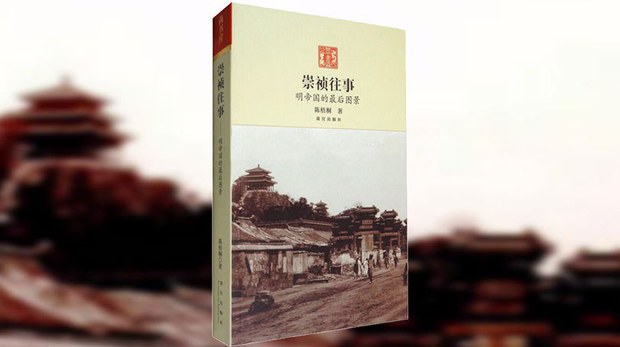China bans book on last Ming emperor after comments link it to Xi
Share

A copy of “Chongzhen: the hard-working emperor who brought down a dynasty.” Online critics have compared the reign of the last Ming emperor to that of China’s current leader Xi Jinping
Authorities in China have banned a book about the last Ming dynasty emperor Chongzhen after online comments said its analysis could apply to current Communist Party leader Xi Jinping.
“Chongzhen: the hard-working emperor who brought down a dynasty” by late Ming dynasty expert Chen Wutong recently disappeared from online bookstores, including the website of state-run Xinhua Books, with multiple searches for the book yielding no results on major book-selling platforms this week.
Meanwhile, keyword searches for the book and its author on the social media platform Weibo yielded no results on Thursday.
Current affairs commentators said the book has likely been removed from public view after online comments drew parallels between its analysis of the fall of the 1368-1644 Ming dynasty and China’s current situation under ruling Chinese Communist Party leader Xi Jinping.
Many online comments picked up on a particular line in Chen’s book: “With one bad move following another, the harder he worked, the faster he brought the country to ruin.”
“From the Ming Dynasty all the way to the present day,” chuckled a post on the “Stupid Stuff from China” Facebook page dated Oct. 17.
“It’s obvious what it’s hinting at,” commented one reader.
Another reader likened Xi to several emperors who were the last of their dynasties.
“Chongzhen, Daoguang, Pu Yi, Winnie [the Pooh], so many like this,” the reader said, using Xi’s nickname Winnie the Pooh, whom he is said to resemble.
Current affairs commentator Wang Jian said the book’s ban was likely down to that sentence, which resonates in people’s minds.
“The book wouldn’t have much of an effect on [Xi], except that it reflects what everyone is thinking,” Wang said. “Xi Jinping has been going against common sense and the will of the people in recent years — everyone has reached a consensus about that.”
“[The book shows that] if someone tries to abuse their power, misfortune will befall them, so it has become a sensitive topic,” he said. “It would never have been banned if it didn’t speak to that social consensus and public feeling.”
Former Hong Kong bookseller Lam Wing-kei, who now runs a bookshop on the democratic island of Taiwan, said any book in China that carries a potentially political message can be banned at any time.
“The top priority for the [Chinese Communist Party] regime is to maintain its grip on power,” Lam, who was detained for months by state security police for selling political books to customers in mainland China, said.
“As soon as they find a book with ideological implications for the regime or its hold on power, they will list them as banned books,” Lam said, citing the banning of the “Sheep Village” series of children’s picture books in Hong Kong.
“The people in power make the decisions, and also determine the criteria for banning a book, which can’t be rationally understood,” he said.
Current affairs commentator Fang Yuan said it’s common in China, where people can’t express their opinions freely, for public dissatisfaction with the government to emerge indirectly, through historical references.
He said people have seemingly responded to the ban by selling used copies of the book at hugely inflated prices on second-hand book-trading platforms, which are less stringently regulated.
One copy of the book was even listed on the Confucius online second-hand bookstore for 1,280 yuan (US$175), 27 times the listed price for a new copy.
“When there’s no hope of playing hard-ball, the public and civil society expresses its anger by playing a softer game, as a way to curse out the government,” Fang said.
“[This book ban] shows that the situation is very sensitive and has reached a stage where everything is tense and everyone is on guard.”
Translated by Luisetta Mudie. Edited by Eugene Whong.







